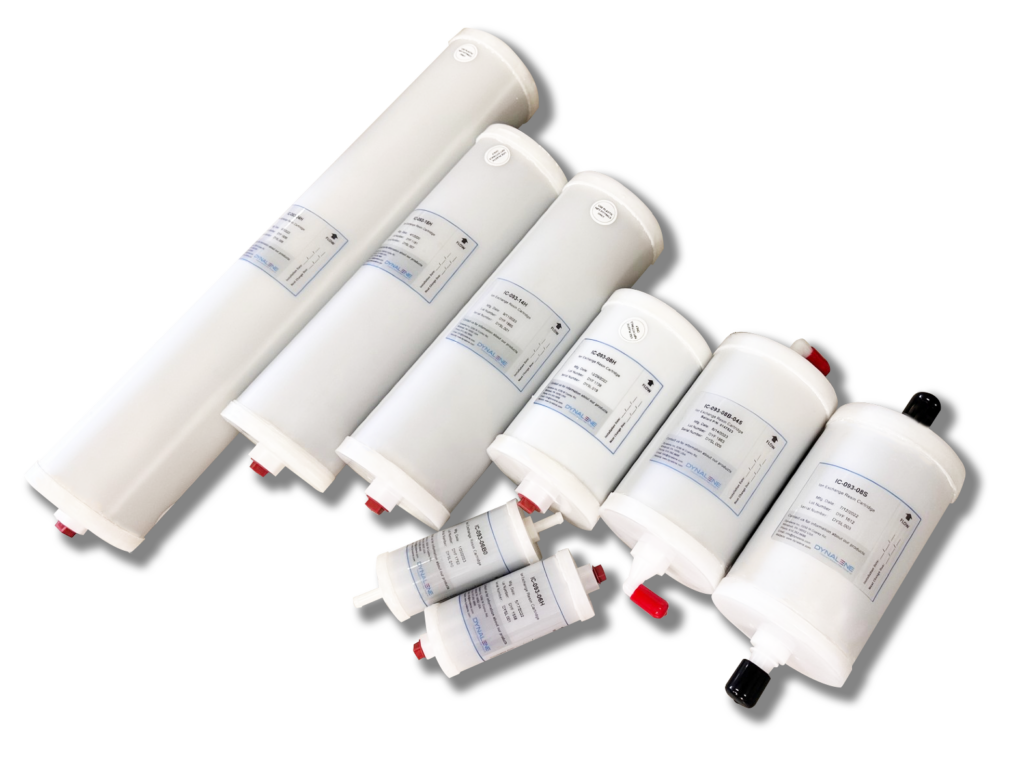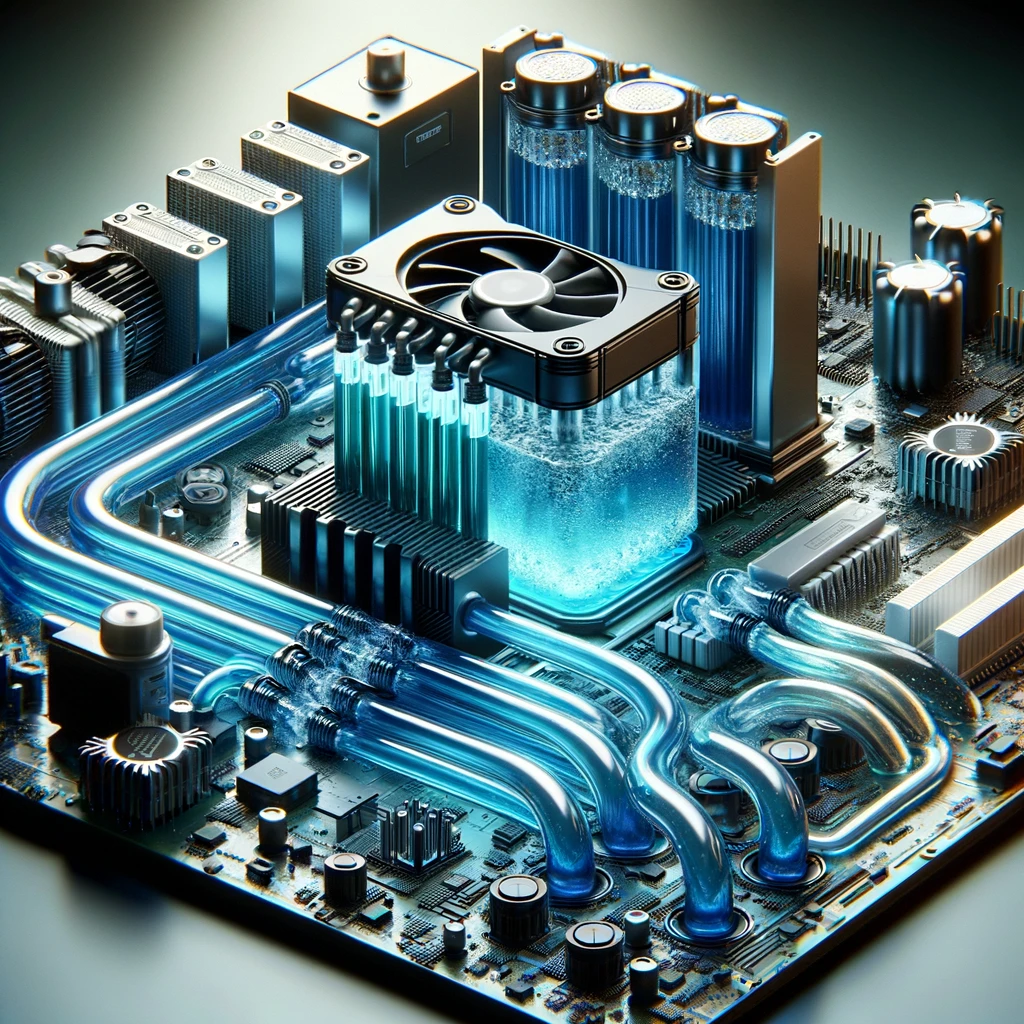Introduction
Liquid cooling of thermally sensitive electronic components is more efficient than air cooling due to its superior heat transfer properties. Glycol/water-based low electrical conductivity coolants, such as the Dynalene LC family of fluids, offer superior indirect cooling for various applications, including fuel cells, batteries, electric vehicles, charging stations, motors, computers, electronics, semiconductors, and data centers. Over time, these low-conductivity glycol water coolants may experience an increase in electrical conductivity (EC) due to ion leaching from the system components, contamination, and high-temperature thermal degradation. Maintaining low EC (< 5 mS/cm) is crucial to prevent short circuits and fire hazards in case of accidental spills or leaks. Removal of different ions from the coolant using an ion exchange resin cartridge (also called a deionizer or a DI filter) is necessary to maintain the desired electrical conductivity levels.

Ion Exchange Resin Cartridges
Typical ion exchange resin cartridges or deionizers are commonly used for purifying and demineralizing water. Dynalene has designed the IC series ion exchange cartridges with a proprietary blend of cationic and anionic resin, often referred to as mixed bed resin. These cartridges efficiently remove both cations and anions in different glycol/water blends, maintaining EC below 5 mS/cm. Specifically designed for long-term, low conductivity applications and a wide temperature range of operation (-25°C to 93°C), the ion exchange resin cartridges demonstrate effectiveness over time.
Temperature and Ion Removal Capacity
Dynalene researchers have conducted extensive tests to determine the effect of temperature (-25°C to 93°C) on the ion exchange capacity and the ion removal rate of the resin in low electrical conductivity glycol water coolants over a period of 12 weeks. The experiments showed that while the ion exchange resin has a continuous usage temperature between -25°C to 93°C, the fastest ion removal occurs between room temperature and 70°C without significant loss of capacity. The resin cartridges continue to provide long-term ion removal at temperatures exceeding 90°C at a reduced efficiency.
Product Features
Dynalene offers a range of sizes for IC series cartridges with various connection sizes to suit different low conductivity applications. These cartridges are fully compatible with Dynalene LC coolant offerings. Applications using Dynalene LC (with the proprietary nonionic inhibitor package) coolants can utilize ion exchange cartridges to maintain fluid health and thermo-physical properties. The cartridges have undergone rigorous testing, including pressure drop, hydrotesting (for pressure rating), high and low flow conditions, ion exchange capacity, vibration, and thermal cycling. One such example is the hydrotesting at room temperature, which showed that the cartridges greater than 8” in length and 4” in diameter sustain pressures exceeding 80 psi, while the cartridges with 6” in length and 2” in diameter withstand pressures exceeding 130 psi. In most field applications, Dynalene IC cartridges have demonstrated a typical lifespan of about 18 to 24 months due to their superior resistance to chemical and thermal degradation.
Summary of Advantages
In summary, the advantages of using Dynalene’s IC series of ion exchange cartridges include:
– Removal of all types of ions
– Maintenance of low electrical conductivity in coolants
– Wide operational temperature range from -13°F (-25°C) up to 200°F (93°C) with a minimum storage temperature as low as -40°F (-40°C)
– High ion exchange resin capacity providing a longer cartridge lifetime
– Compatibility with Dynalene LC series coolants containing the non-ionic inhibitor package
– Resistance to physical and chemical deterioration
– Easy installation, customization, and several connection options


